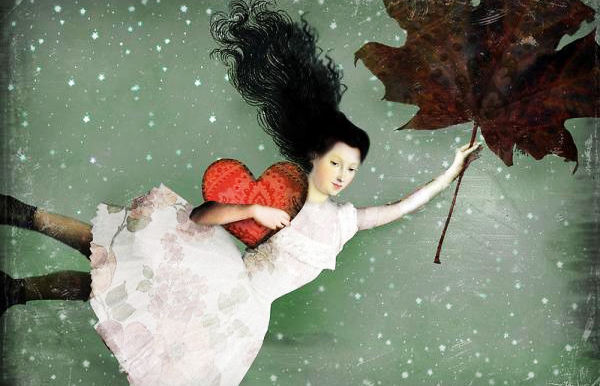love
The Most Inspiring Love Letters in the History of Literature (1): Honoré de Balzac to Ewelina Hanska

Painting by Gerolamo Induno
In celebration of Valentine’s Day, we have prepared for you a small selection of the most beautiful love letters written by famous writers. We begin with a letter dated June 1835, one of 414 that Honoré de Balzac, one of the leading – and definitely the most prolific – exponents of 19th century French Realism, wrote to the love of his life, the Polish Countess Ewelina Hanska.
It was the Countess, at first only another admirer of Balzac’s work, who initiated the correspondence with an anonymous letter in 1832. The next year, they met in person for the first time, in Switzerland. At the time, Hanska was married to a man 20 years her senior, who suffered from depression. She had given birth to several children, of which only one, a daughter named Anna, survived.
Written three years after their first meeting, Balzac’s letter expresses the anxiety of a love that has to be lived in secret and at a distance.
“MY BELOVED ANGEL,
I am nearly mad about you, as much as one can be mad: I cannot bring together two ideas that you do not interpose yourself between them. I can no longer think of nothing but you. In spite of myself, my imagination carries me to you. I grasp you, I kiss you, I caress you, a thousand of the most amorous caresses take possession of me. As for my heart, there you will always be — very much so. I have a delicious sense of you there. But my God, what is to become of me, if you have deprived me of my reason? This is a monomania which, this morning, terrifies me. I rise up every moment say to myself, ‘Come, I am going there!’ Then I sit down again, moved by the sense of my obligations. There is a frightful conflict. This is not a life. I have never before been like that. You have devoured everything. I feel foolish and happy as soon as I let myself think of you. I whirl round in a delicious dream in which in one instant I live a thousand years. What a horrible situation! Overcome with love, feeling love in every pore, living only for love, and seeing oneself consumed by griefs, and caught in a thousand spiders’ threads. O, my darling Eva, you did not know it. I picked up your card. It is there before me, and I talked to you as if you were here. I see you, as I did yesterday, beautiful, astonishingly beautiful. Yesterday, during the whole evening, I said to myself ‘She is mine!’ Ah! The angels are not as happy in Paradise as I was yesterday!”
After Ewelina’s husband passed away in 1841, she planned to marry Balzac, but doing so meant that she would lose her estate and that her daughter Anna would lose her inheritance. However, the two continued to see each other and Ewelina became pregnant. Although Anna’s marriage meant that they were free to marry as well, the relationship was clouded by Ewelina’s miscarriage and by an episode of jealousy directed against Balzac’s housekeeper. Balzac’s own irresponsible and careless lifestyle made Hanska reluctant to marry him. In 1849, the writer fell gravely ill, and the Countess made up her mind. After transferring her estate to her daughter, she married the writer in March 1850. Sadly, Balzac’s health continued to deteriorate and he died only five months after the wedding, on August 18, 1850.
During the last days of his life, he expressed his concern for his wife’s future to his friend, Victor Hugo, saying, “My wife is more intelligent than I, but who will support her in her solitude? I have accustomed her to so much love.”
Ewelina Hanska survived Balzac by over 30 years and, although she had several other relationships, most notably with the painter Jean Gigoux, she never remarried and died in 1882.
—
Anca Rotar is a Romanian-born writer, over-thinker and caffeine addict. She is the author of two books, Hidden Animals and Before It Sets You Free, both available from Amazon.com. Among her interests, which she finds it hard to shut up about, she counts fashion, yoga, city breaks and deadpan sarcasm. She is also currently studying Japanese, so wish her luck. You can sample bits of Anca’s creative writing here.
Be the first to write a comment.
Your feedback
